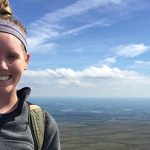
Distinguished professor Steven Strauss focuses his attention on genetic engineering and gene editing in poplar and eucalypt trees. He’s using genetic technology to make state-of-the-art modifications to a variety of traits, including flowering and productivity.
“We’re working at the DNA level directly,” Strauss says. “In typical breeding you cross and select families of plants to make seeds that are going to be more productive or superior in other ways. By intensive selection and crossing you can change a tree’s DNA considerably, but it’s an indirect effect. In contrast, in genetic engineering we must know the science surrounding the target traits first, not just which plants grow better. This knowledge allows us to modify them at the DNA level.”
Strauss is working with students, faculty and researchers on a new type of genetic technology known as gene editing, or CRISPR. It gives researchers the ability to specify precisely where a genetic change will be made—something that was essentially impossible before. Strauss says the technology is only a few years old and is an exciting step for biotechnology.
By using CRISPR and directing it at different kinds of genes, plants may become disease resistant, pest resistant and more productive.
One genetic change Strauss focuses on is the prevention of pollen and/or seed production.
“It can provide a level of containment, and confidence in containment, that is unprecedented. This should help with public acceptance and regulatory approval, and may improve tree productivity,” Strauss says.
Genetic engineering is used widely in the agriculture. Gene editing will likely be coming to agriculture and medicine in the near future. Strauss says that gene editing could be an important tool for forest tree breeding too, and plans to continue working in this area and exposing his students to the rapidly growing technology.
“It’s mind-blowing in its power,” Strauss says, “and the training students get using it in the lab will help them whether they plan to work in forestry, agriculture, medicine, conservation, or many other biological fields.”

